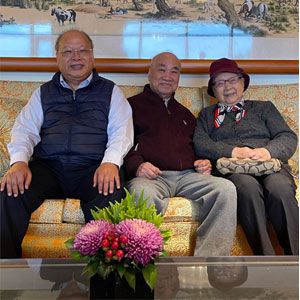
The global leather industry is navigating a complex landscape marked by evolving consumer preferences, regulatory pressures, and competition from synthetic alternatives. Demand for leather has softened in recent years, driven by younger consumers gravitating toward vegan and eco-friendly materials, while rising raw material costs and supply chain disruptions have strained traditional manufacturing models. Stricter environmental regulations, particularly in export-driven economies, further challenge producers to adopt sustainable and transparent practices.
Amid these pressures, the industry also contends with a growing need for technological innovation to ensure traceability and efficiency. In an industry often criticized for its environmental impact, Harvest Glory Family has positioned itself as one of the pioneers of sustainable practices in leather manufacturing.
Leather, Legacy, Sustainability
Harvest Glory Family operates on a foundational principle of turning byproducts of the meat industry into high-quality leather goods. With nearly 45 years of experience, this family-run enterprise has woven environmental consciousness into the fabric of its operations, redefining what it means to be a leader in a centuries-old industry.
“We view our operation more as an environmental recycling initiative", says Richard Pai, President, Harvest Glory Family. By working primarily with bovine hides, a byproduct of meat production, the company mitigates waste while supplying premium leather for footwear, apparel, and industrial uses. This pragmatic approach underscores the company’s role in addressing modern sustainability challenges while maintaining a connection to its roots.
Unlike public corporations with access to extensive resources, the company relies on in-house expertise honed over decades. While this approach can slow the adoption of new business strategies, it ensures a deeply personal connection with customers and partners.
This relationship-driven ethos has enabled the company to nurture small client portfolios into major accounts, producing upwards of 1.5 - 2.5 million square feet of leather annually for clients such as Timberland, Wolverine, and Deckers.
Crafting Shoes, Meeting Expectations
Harvest Glory Family was among the early manufacturers of Nike Air Jordan during the footwear and leather industry boom in Taiwan in the 1980s and 1990s. However, over the last 15 years, the focus has shifted toward building close relationships with customers, emphasizing a meticulous understanding of their needs. This involves bridging communication gaps about materials, shoe styles, construction methods, and even the finer details like cutting dies. To deepen this understanding, Richard personally spent six months working in a shoe factory to gain firsthand insights into the development and production processes.
The philosophy has always been that producing high-quality leather alone isn’t enough. Leather that meets industry standards might still fall short if it doesn’t suit the specific style or construction needs of the customer’s end product. To address this, the company takes a proactive approach, offering post-production support to ensure the final product meets consumer expectations. This includes dispatching technicians to troubleshoot issues in shoe factories, whether it's related to tensile strength, improper construction causing wrinkles, or material choices that fail to achieve desired effects, such as artificial alternatives not maintaining the shape in critical areas. By investing in such after-service efforts, Harvest Glory Family aims to ensure the end consumer receives a product that is not only well-crafted but also aligned with their expectations.
Harvest Glory Family aims to ensure the end consumer receives a product that is not only well-crafted but also aligned with their expectations
Quality Assurance - A Cornerstone
By maintaining SATRA-certified laboratories in-house, the company ensures rigorous testing for products destined for waterproof footwear, military boots, and outdoor recreational gear. “It’s not just about making good leather, it’s about ensuring the final product meets the consumer’s expectations", says Richard. This philosophy extends to after-sales service, with technicians assisting clients in resolving manufacturing issues to guarantee optimal outcomes for end-users.
The company’s manufacturing processes reflect its commitment to innovation and environmental stewardship. A gold-rated member of the Leather Working Group (LWG), Harvest Glory Family has integrated water recycling and solar energy systems into its operations. For instance, its Vietnam tannery generates up to 2.6 megawatt-hours of solar energy during peak periods, significantly reducing its reliance on the local power grid. Sustainability isn’t a benchmark, it’s the standard at the company, as it pursues new advancements like closed-loop water recycling.
Harvest Glory Family’s enduring success stems from its ability to balance tradition with modernity. As the company navigates an increasingly competitive and scrutinized industry, its commitment to quality, sustainability, and long-term partnerships positions it not just as a manufacturer but as a custodian of a legacy. It aims to expand capacity and deepen partnerships with local suppliers while adapting to the industry’s geographic shifts. With operations historically rooted in Taiwan, China, and Bangladesh, the company is now focused on Vietnam and exploring emerging markets that align with its clients’ evolving needs. Traceability and sustainability initiatives remain at the forefront of its strategy, ensuring compliance with ethical sourcing standards and reinforcing its leadership in the global leather market.
Richard Pai, President, Harvest Glory Family
Richard personally spent six months working in a shoe factory to gain first hand insights into the development and production processes.
We use cookies to ensure you get the best experience on our website. Read more...